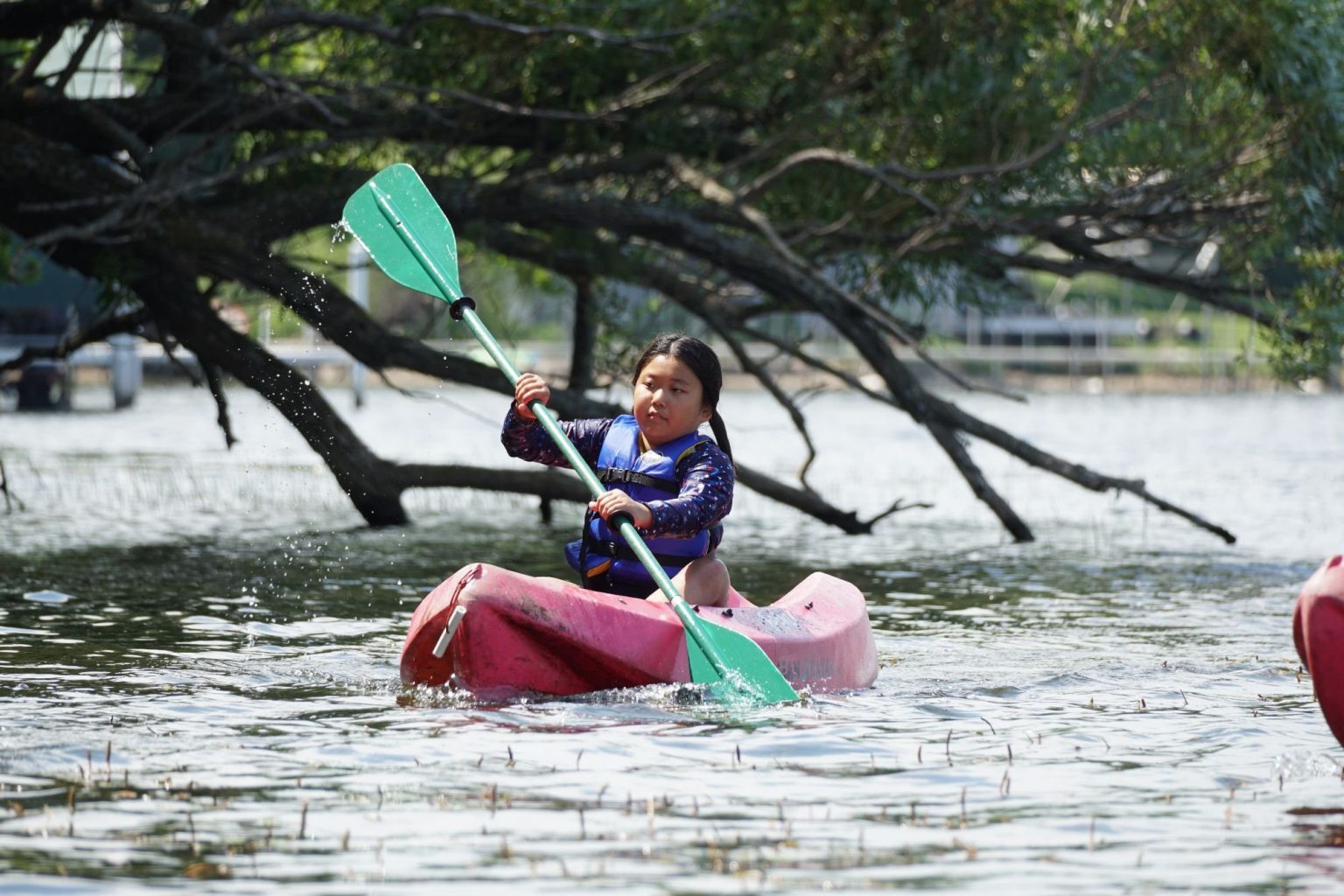
To make their programs more inclusive, grantee partners such as Camp Fire and Girl Scouts USA reported they first needed to learn about and understand the barriers youth face in fully participating.
Camp Fire has identified areas for improvement in camp facilities and program delivery. They worked with ten local Camp Fire Affiliates to address these barriers, including adding Inclusion Specialist staff roles at each camp. Inclusion Specialists proactively address accessibility needs of campers and their families through
pre-camp consultations and advise on training and policy changes at camps.
Girl Scouts USA conducted a research study on the lack of inclusion of historically marginalized populations at Girl Scout camps. This study included the voices of Girl Scouts that do and do not attend camp, girls that are not in Girl Scouts, caregivers, and others. Girl Scouts USA is now launching its work to reduce identified barriers such as lack of family history with camp, fear of exclusion, and costs.
MACP’s Youth Camping & Swimming program seeks to increase the number of youth who have the opportunity to experience high-quality swim lessons and nature-based overnight camping. To achieve this goal, MACP works with national organizations to address barriers to inclusion, especially for youth who have been historically marginalized from camp or swim experiences, youth from families of low income, youth who identify as LGBTQIA2S+, and youth with disabilities.
